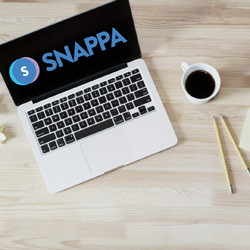Getting Paid for Your Services
This page may contain links to Amazon.com or other sites from which I may receive commission on purchases you make after clicking on such links. Read my full Disclosure Policy

A reader sent me the following question:
There are a decent number of people in my town with good income, but the majority are low income, and I am concerned with getting paid. How do you go about getting a deposit up front? Is there some way to ensure that you get paid for your services?
These are some really important issues! Let’s start with the question of the deposit.
I highly recommend that you obtain a deposit at the time you book an appointment. When your clients pay a deposit up front, it shows that they are committed to working with you. If the organizing session is booked during an in-person consultation, they can pay you by cash or check. If it is booked by telephone, email, or online, they can pay you by PayPal (see my earlier post, Accepting Credit Cards, for more details).
It is not unheard of for clients to cancel on short notice; I’ve even shown up for appointments only to find that the person who scheduled it was not there. When that happens, it’s not likely you’ll be able to fill that time slot with other paid work, so it’s not unreasonable to expect to be paid for at least part of your time. Whether or not you will reimburse part of the deposit in the event of a cancellation, or apply it to rescheduled appointments, should be clearly outlined in your written agreement with the client. Your agreement should also address when subsequent payments are due – ideally you will be paid at the end of each organizing session – as well as any penalties that will be incurred for late payments.
There are a number of sources for sample agreements, including The FabJob Guide to Become a Professional Organizer and Anne Blumer’s book, Get Rich Organizing: The Professional Organizer Survival Guide To Launch, Manage, and Grow a Profitable Business. Whether you use one of their templates or write an agreement of your own, it is best to have it reviewed by a legal professional who knows the laws in your area. Some cities have a small business center where you can meet with a lawyer at a lower cost than if you went directly to a law firm.
You should carry a supply of blank agreements with you so that the agreement can be signed at the same time that the deposit is paid. This can also be done online, using electronic signature software such as SignWell. This service allows you to upload your prepared agreement and email it to your client, who then signs it electronically. I’ve been using this type of tool in my business for over ten years, and I’ve always been impressed with how quick and easy it is to use.
The other issue identified by my reader is the fact that many of the people in her area have a low income. This situation can make it tempting to lower your rates, but the harsh reality is that not everyone will be able to afford your services, no matter where you live. If you’re not comfortable turning away those who cannot, you may wish to consider sliding scale rates or occasionally volunteering your services to someone in need. Just remember that you are operating a business, not a social service agency, and although you want to help others, if you don’t generate a sustainable income, you won’t be in business for very long.
Established organizers are often approached by newbies looking for a job shadowing or training opportunity. Bringing in such trainees as your assistants at no extra charge to your client can keep the total cost of the organizing project down and make it more affordable for lower income clients.
Another option is to offer alternatives to individuals who need organizing help but cannot afford to pay for a professional organizer. This could be in the form of customized organizing plans that your clients can implement on their own, organizing workshops or teleclasses, or information products (your own or someone else’s). The benefit of offering teleclasses and/or information products is that it expands your market to people outside your geographic area and provides you with the potential to earn passive income.
I’m sure that some of you will have some other suggestions and I welcome your comments. If you have a question of your own, please feel free to submit it at any time.











Great food for thought because most of it I have not done. I rarely take deposits, only when I am buying a large amount of product for a client. I get paid at the end of each session or they buy a package and so that will cover the cost of a number of sessions. On a package, I am getting paid in advance. Over 16 years I have only had 1 client that took 9 months for me to collect. I have never not been paid. I do have one client who continually tries to talk my price down and I thought he needed the sliding scale pricing. I soon learned he did not. Now I always quote my price at the start and if I have a lower income client and I can tell they are very committed and it is a hardship for them I will on a later appointment reduce the price or give them a session for free. I need to see the commitment first. Most of my clients are very respectful of my time and work. I am very thankful for those clients.
Julie, thank you for sharing your experiences. It sounds like you’ve been lucky, but you also have some good procedures in place.
Janet, you did a great job covering these various issues. I’d like to note a few things. The supposition of the reader who wrote in seemed to be that people without adequate funds might not pay (or might cancel). It’s been my experience that people of more moderate means understand the negative impact it can have on someone to expect to have work and be paid and have that withdrawn unexpectedly. In 20 years, I’ve never had a client of more “moderate” means cancel without warning (or inside my 48-hour cancelation period) or not show up; any time a client has been disrespectful, it’s been someone who has less of a sense of what lost money can mean. (I’m not saying that people who live in McMansions can’t be respectful, just that they seem to be less concerned with their impact on other people’s finances than those of smaller incomes, and seem less concerned about leaving someone in the lurch.)
All of your advice is super, but after many years, I’ve come to believe that contract or not, people who aren’t inclined to live by the rules just aren’t going to live by the rules. A contract does you no good if the dollar value of your services is less than what would make it reasonable to go to Small Claims court (and lose another paid client day) or if it would exceed your state’s Small Claims court limit and you’d have to file a full-on lawsuit and pay an attorney. Luckily, in my state the maximum is fairly high, but other states have limits that might exceed the cost of a handful of sessions in a broken contract. If you’ve booked a client for one session, contract or no, if they don’t honor it, you’re likely out of luck. And even getting a cancelation fee paid can be an iffy prospect because the minimum fee to bring a case in Small Claims court can equal half (or greater) than your cancelation fee.
Contracts are important, but they’re probably not going to protect against failure to keep and appointment or to pay, which is why you’re so right about taking deposits.
I also appreciate you noting that no, not everyone can afford one-on-one services, but that is true of almost any *professional* service, and I love that you identified alternative ways to help people in need. Great job!
Julie, thank you for your insightful comments. You make some great points!
I’ve made it a practice to always have one sliding-scale client. It might be a client who started with me when my rates were much lower, or it might be someone who called me this morning who tugs at my heart-strings. Being intentional about this helps me not give away the shop.
I think that being intentional is key to many things! Thank you for sharing your practice.